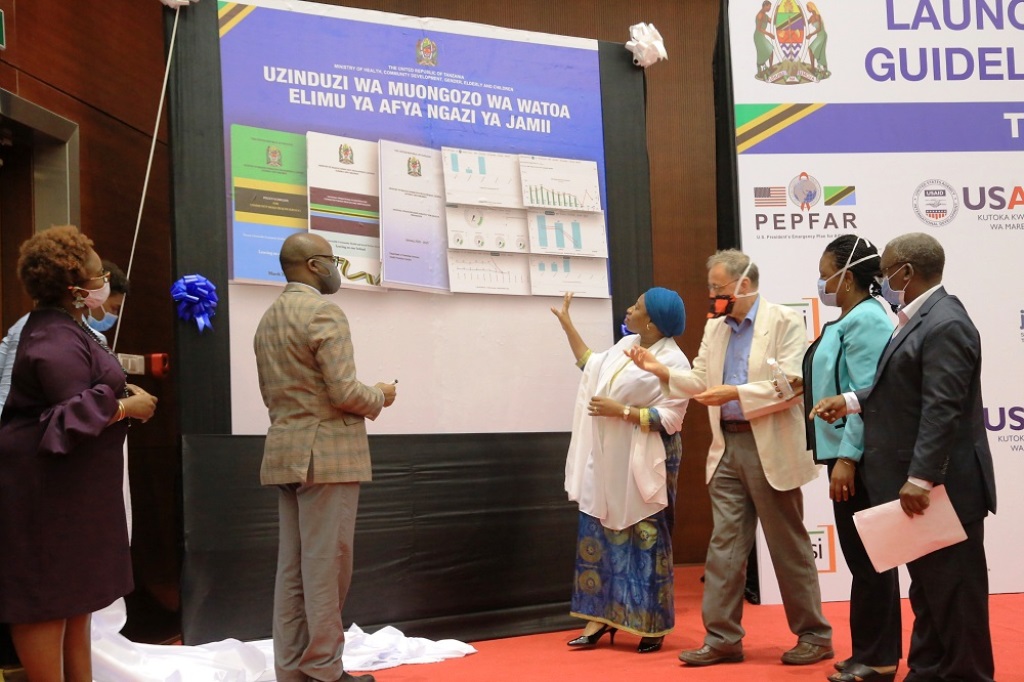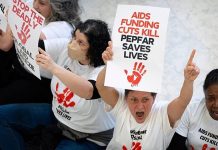AfricaPress-Tanzania: THE government says it will continue to give priority to the improvement of immunisation services, including health education and sensitisation, nutrition, prevention from communicable diseases, HIV/ Aids as well as maternal and child health care.
The Minister for Health, Community Development, Gender, Elderly and Children, Ms Ummy Mwalimu, made the remarks at the launching event of guidelines of the community health services plan and use of dashboard indicators of public health education, held in Dar es Salaam yesterday.
“The launching of this initiative will supplement efforts for reducing the burden of high medical costs to the people, which has been increasing able diseases,” she said.
The minister said the importance of immunisation services is underlined in the National Health Policy 2007 and the Health Sector Strategic Plan of 2015-2020, that will also be included in the preparations of the new 2020 National Health Sector Policy.
The initiative of delivering health services at the community health workers level will enhance provision of immunity services at all community levels as well as providing health education as a means to prevent the community from diseases.
She pointed out that when community health workers have correct education on health related issues which in one way or the other affect their health, they are in a position to make appropriate decision on health issues.
This will ultimately result in creating a nation of healthy people who can contribute to their own development, as well as that of their families, the communities in which they live and the whole country at large.
Minister Mwalimu stressed that the government would continue improving health services in order to reach universal health coverage, whose aspects include all initiatives related to the provision of health education on nutrition, reproductive healthcare, youth and children as well as the outbreak of COVID-19.
Such efforts also focus on sensitising the application of health insurance that will enable people access more services.
For example, in the past three years, the number of people who got health treatment on non-communicable diseases rose from 3.4 million in 2016 to 4.2 million in 2018, which is equivalent to a 24 per cent increase.
Moreover, the number of deaths caused by non-communicable diseases was 33 per cent of all deaths in 2017 (134,600).
The number of deaths caused by heart diseases constituted 13 per cent of all deaths, which is higher than those caused by HIV/Aids, TB and malaria.
The minister noted that all these diseases can be reduced in the community by enhancing health education systems as well as providing correct education to the people on preventive measures and following best health practices.
The government intends that all these be done by healthcare providers (community health workers) at the community level where after evaluation, it emerged that some villages were too big to be served by only two healthcare providers.
“The community health workers should provide awareness to the community to search for formal health services as well as use of health insurance services,” she said.
Speaking at the same event, USAID Tulonge Afya Project Leader Mr Waziri Nyoni, commended the government for formalising the system of providing health services in the community.
Previously, each stakeholder followed one’s own system that was marred by many challenges. He said the Tulonge Afya project uses community health workers in implementing most of its projects.
Mr Nyoni noted for example, that to-date, there are 2200 healthcare providers in 12 regions and 29 districts, who are engaged in the project.
The Research, Evaluation and Traceability Director of FHI360, Dr Joseph Msofe, said USAID Tulonge Afya has collaborated with the ministry of health to prepare the system of receiving and delivering information which is linked with the DHIS2 in the ministry.







